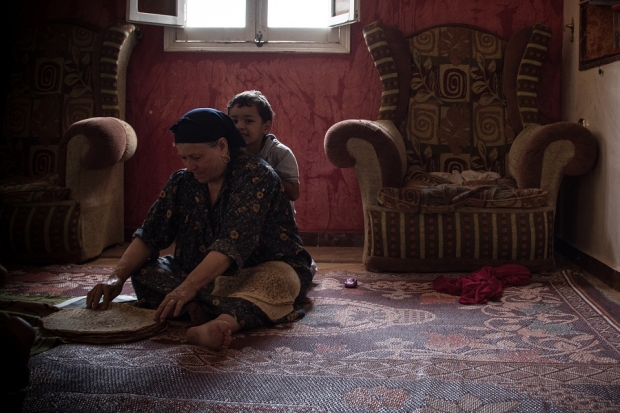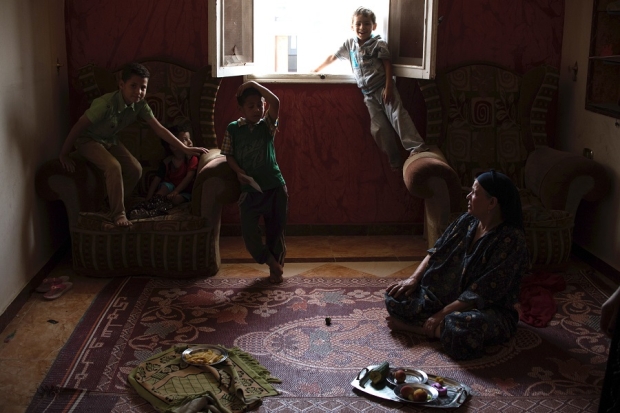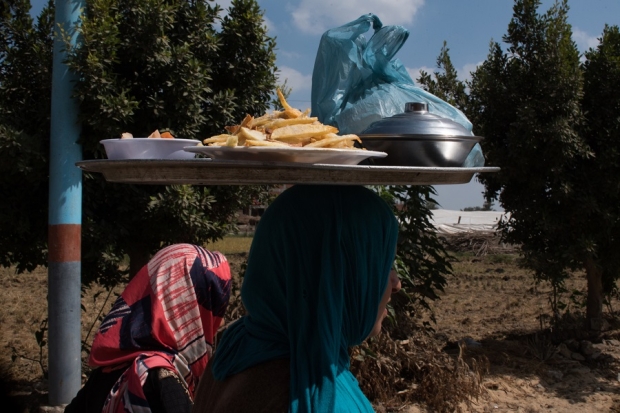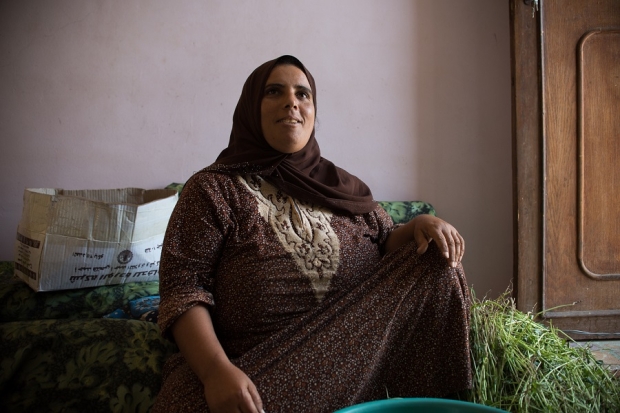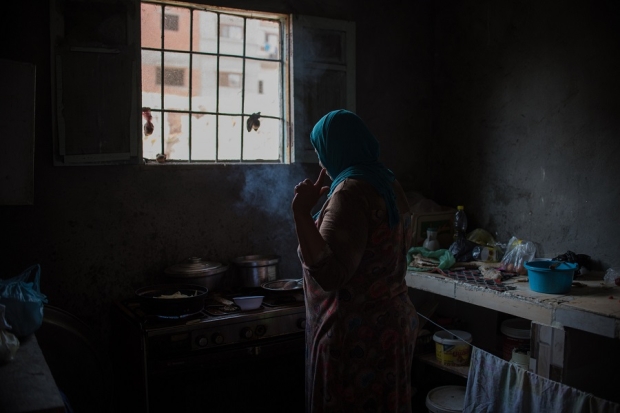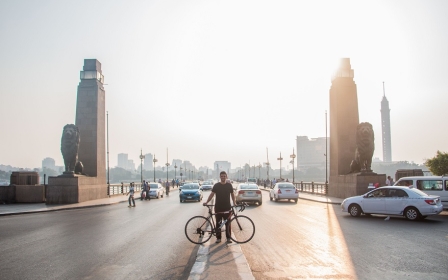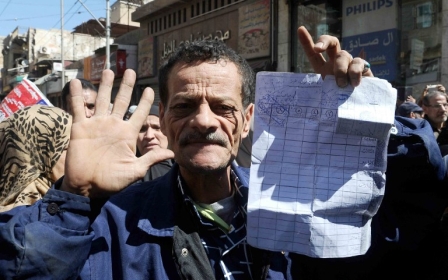Birth control and government: Should Egypt tell mothers what to do?
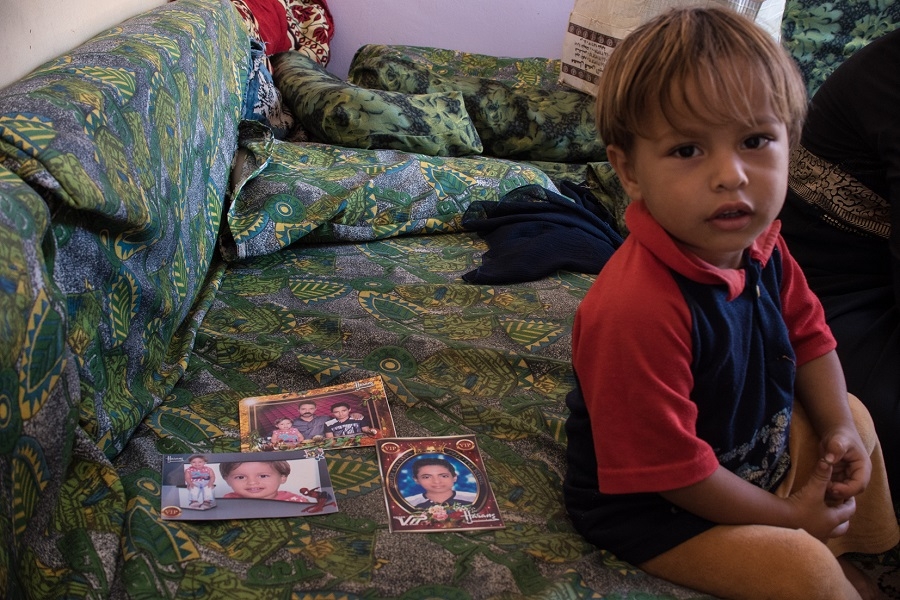
CAIRO - The prospect of having a big family is a nice one for Ayah Mutasim, a young Cairene mother and one of five siblings.
“I grew up in a big family and I realise now that I am really happy about that. It becomes a good psychological support system,” she said.
Mutasim has two daughters, a six-year-old and a four-year old, but she plans to have more.
I grew up in a big family and I realise now that I am really happy about that
- Ayah Mutasim, mother
“The two biggest dangers that Egypt faces throughout its history are terrorism and population growth, and this challenge decreases Egypt’s chances of moving forward,” President Abdel Fattah al-Sisi said during a speech at the National Youth Conference of July.
“Can I ask those who have two children to wait six or seven years until they have their third child? Can I ask those who have three children until now, not to have any more children?" Sisi said, asking the head of Egypt’s highest Islamic authority, Al-Azhar, whether this was forbidden in Islam or not.
The Grand Imam of Al-Azhar, Sheikh Ahmed al-Tayyeb responded, stressing that it was halal (permitted) and announced his support to the government’s family planning initiatives.
On 2 October, Prime Minister Sherif Ismail echoed Sisi's concerns during his address to the Egyptian parliament.
"The biggest challenge that we should be combating is population growth; especially after we reached an unprecedented increase that would affect what has been accomplished in terms of economic growth," he said.
Mutasim disagrees that the government should have a say in a matter she considers very personal.
“The state is just making excuses for its economic failure. There are so many other countries that have a lot more people but their economies are doing so much better than ours.”
For Mutasim and her husband, who both come from a middle-class background, the government’s family campaigning efforts have had no effect on how many children they would like to have.
The state is just making excuses for its economic failure
- Ayah Mutasim, mother
“Now I’m only thinking about how hard it is to raise a child, and how to take care of them psychologically. That’s the only reason I may choose to have less children, but not because of the family planning campaigns,” she explained to Middle East Eye.
In his statements, the minister of health highlighted statistics showing that Egypt’s current population of over 93 million would reach 128 million people by 2030 if the fertility rate does not decrease.
“Although these newborns and young people could be an asset, from a services perspective they would really suffer. We have a deteriorating education system, health system, and infrastructure,” Fatima El-Zanaty, a professor of statistics at Cairo University told MEE.
“If we had a strong economy, these young people could be seen as a resource for the country," she added.
The health ministry said it would deploy 12,000 family planning advocates in 18 governorates across the country to implement several initiatives affiliated with Operation Lifeline, but gave no details about its budget or how the programme will attract Egyptians.
Dr Suad Adbul Majid, head of the population and family planning section at the Ministry of Health and Population, said that the initiatives offered women a variety of contraceptives depending on their needs, as well as free consultations and check-ups.
In September, Abdul Magid stated that the government spent $250m this year on imported contraceptives. The cost doubled after the floatation of the Egyptian pound last November. These contraceptives are usually heavily subsidised by the government when sold to the public through family planning clinics.
For El-Zanaty, the initiative is not powerful enough and there is no clear programme.
“I feel that [a good family planning campaign] existed for a very long time, it was complete, meaning that it included both services and awareness,” El-Zanaty told MEE.
The concept of family planning and the idea that rapid population growth poses a threat to the national development of the country have a history that goes back decades.
“[Family planning campaigns] have a long life that dates back to the 60s. You can see this discourse about the need to control fertility rates coming into the picture starting from the July [1952] Revolution,” Atef El-Shetani, a doctor who specialises in these campaigns within the Ministry of Health told MEE.
'Take it or leave it'
In Sharqiya, Shereen Gomaa, who spends her days working in vegetable fields, explained to MEE that the family planning “advice” from the government would come in different ways. “For example, when medical caravans came to give vaccinations to kids, the doctors would ask us how many kids we have and tell us that’s enough.”
Gomaa said that given the conservative nature of the village, most of the doctors and nurses that spoke to them were women, and they knew how to explain and get the message across in a respectful way.
Gomaa, who has three children, said that she is not planning on having more kids. Every month, she’ll go along with a few other women in the village to the nearest health clinic to get a contraceptive shot that is subsidised by the government and costs them 1EGP each (5 cents).
Egyptians can buy other heavily subsidised contraceptives like condoms as cheap as 0.10 Egyptian pounds and copper intrauterine devices at 2 EGP (11 cents). The ministry runs around 6,000 family planning clinics specialising in providing women with subsidised birth control across the country.
“People didn't have too many concerns [at the time]. If the children got their education, they got [it], if they didn't, they would work," she added.
But as the prices of basic commodities soar and living expenses increase, Gomaa said that three children are enough for her. Egypt's inflation rate surged to over 35 percent in July since Egypt floated its currency in November, after securing a $12 billion loan package from the International Monetary Fund (IMF).
“But three for me is a good amount. If you have so many kids, you won’t be able to feed them, or educate them, or raise them properly," said Gomaa, whose youngest daughter is two years old.
If you have so many kids, you won’t be able to feed them, or educate them, or raise them properly
- Shereen Gomaa, farmer
This opinion is also the government's discourse on population size, but Gomaa finds it convincing. The way she sees it, the doctors “are just offering advice; you can take it or leave it”.
But Gomaa’s husband, Ashraf Shabaan, disagreed. “The decision should be between two people only, the husband and the wife," he said, adding that he would like to have more children.
“It isn’t anyone else’s business,” the farmer added.
So far, the family planning campaigns have pointed their attention solely towards women, while men are not informed on the matter.
The decision should be between two people only, the husband and the wife
- Ashraf Shabaan, farmer
Dr El-Shetani from MOH, acknowledges the disparity. “There is a gap in this regard,” he said. “And it is important because most of the women will say they share the decision of whether to have children or not with their husbands.”
The history of family planning
According to El-Shetani, after the Camp David accords, the first peace deal between Israel and an Arab state signed in 1978, the US Agency for International Development (USAID) began funding a programme for family planning, which included campaigns raising awareness about the benefits of having a small family.
“Early on, all costs were covered by USAID. This included TV commercials, brochures, cultural events, and more. When these campaigns are fully funded by the government, they’re made on a much smaller scale because the government does not have the resources,” he said.
According to a USAID report issued in 2010, the US Agency had provided $1bn for Egypt’s population and health sector for over a 30-year period. El-Zanaty said that the funding decreased in the following years, with the assumption that the projects already put into place would be sustainable. Hence, no new projects needed to be initiated for the future.
Recent family planning initiatives mostly depend on holding meetings, seminars, workshops and cultural events at youth centres and women-only social clubs to spread the word. According to El-Shetani, they now rarely depend on TV ads because they come at a very steep cost that the government cannot afford.
"For private channels, these commercials can cost up to two or three million EGP ($113,000-$170,000) and the only way we can manage to make these commercials is if a businessman sponsors them," he said.
USAID is considering funding more family planning programmes. In August, the organisation posted a grant opportunity titled, “Strengthening Egypt’s Family Planning Programme,” for $19.2m.
But Mutasim remains unwavering in her love of a big family. While the current economic crisis has proven tough on all levels, the economy won’t be the breaking point for her decision on how many kids to have.
“When the kids come, you find that you can manage and doors open up.”
Middle East Eye propose une couverture et une analyse indépendantes et incomparables du Moyen-Orient, de l’Afrique du Nord et d’autres régions du monde. Pour en savoir plus sur la reprise de ce contenu et les frais qui s’appliquent, veuillez remplir ce formulaire [en anglais]. Pour en savoir plus sur MEE, cliquez ici [en anglais].


